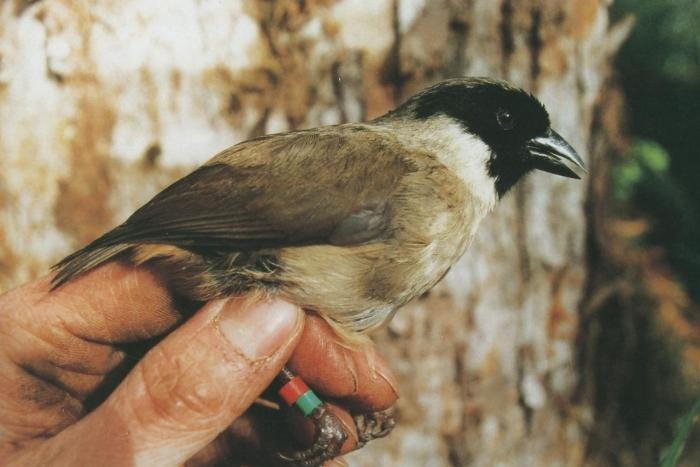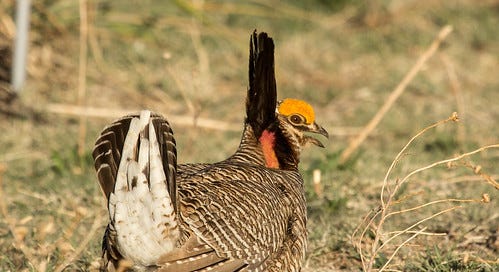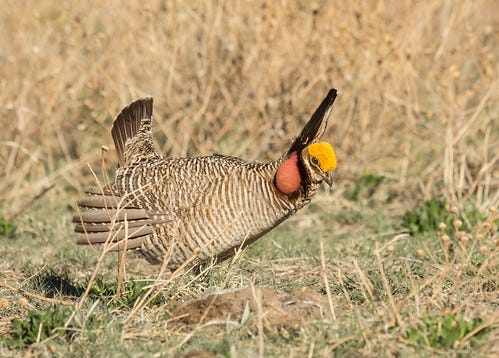The Road to Extinction
Paying attention to nature and the environment is every bit as important as paying attention to the marketplace.
(Listen to the radio version here.)
In 1971, a few months before Russ and I got married, we bought a brand-new Ford Pinto that we named Sammy.
It would have been more affordable for us to buy a used car, but Sammy got far better gas mileage than an old beater, and keeping our fuel consumption low was our primary concern just a year after the first Earth Day. Better mileage both reduced pollution and lowered our contribution to global warming.
Even though we got as good mileage as possible, we didn’t drive much, taking the bus, our bikes, or walking just about everywhere. This was back when, during what they called a “gas war,” competing stations would sometimes sell gas at less than 20 cents a gallon and the average price of a gallon of gas was 36 cents. So driving was significantly cheaper than riding the bus, but we were committed. When we lived in Madison in a neighborhood with very little street parking, we rented a parking space a few blocks away and left the car there except to go to Chicago to visit family or, very rarely, to go somewhere on the other side of town. Our grocery store was five or six blocks away, a pleasant walk and not all that bad even while lugging the bags home. For two years, my job was 7 ½ miles away, a lovely ride on Madison’s bike paths, and when it was raining or ice and snow were on the roads, I took the bus.
Science’s knowledge that burning up fossil fuels was leading inexorably to climate change went back further than Russ’s and my awareness of it in 1971, when people who paid attention to science were already very aware of the dangers. Some people were translating their knowledge into action, too. On June 20, 1979, President Jimmy Carter flipped the switch on 32 solar panels on the White House so that we could use, as Carter put it, “the power of the sun to enrich our lives as we move away from our crippling dependence on foreign oil.” But GE spokesman and then president Ronald Reagan took them down in 1986, just months after his administration abolished the Carter administration’s tax credits for homeowners installing solar water heaters. Two decades later, in 2008, Reagan’s former attorney general Edwin Meese urged the EPA under George W. Bush to stall on climate change regulations.
Of course addressing climate change is a political issue, but it should not be a partisan one. In 1985, Carl Sagan addressed Congress, introduced by Minnesota’s republican senator, David Durenberger.
Listening to the questions after Sagan’s testimony, it was clear most politicians were thinking in terms of the next election, not the next generation. In the 1970s and 1980s, climate change was an issue that did not appear to have immediate repercussions—it would mostly affect children and grandchildren who didn’t even exist yet. Responsible adults maintain their homes and pay for homeowners, health, and life insurance, making sacrifices to protect their families’ futures, but people willing and able to donate millions of dollars to politicians tended to be the ones making billions of dollars in the industries surrounding fossil fuel.
That short-term “greed is good” mentality persists today despite the fact that the children and grandchildren of the future back then are suffering mightily right now. And when we humans are suffering devastating losses due to fires, floods, hurricanes, droughts, rising sea levels, diseases and pest organisms thriving in warmer temperatures, etc., we don’t think much about the wildlife suffering even greater losses. Lesser Prairie-Chickens are holding on by a thread in their tiny drought-stricken and overgrazed range that has been destroyed perhaps beyond repair.
Malaria-carrying mosquitoes are reaching higher and higher elevations in the Hawaiian Islands, wiping out native birds. Since the 1500s, an astonishing 30 percent of all bird extinctions on the planet were of native Hawaiian birds. Twelve Hawaiian birds—American species protected by our Endangered Species Act—disappeared during the 50 years since the ESA was enacted, four of them just since 2000. Everyone knows about the dodo and Passenger Pigeon, but who has even heard of, much less mourns, the Poʻouli, an American species declared extinct in 2019?

If we couldn’t be bothered in the past half century to do anything to protect our own species’ future on this planet, I shouldn’t be surprised that we so cavalierly ignore extinctions in this day and age in this very country. It’s significant, I think, that Marketplace airs daily on National Public Radio, even replacing the 6 o’clock news on my local NPR station, while no similar national news program about the environment, much less specifically about nature, gets similar daily airing. Greed is good, and no matter what else is happening, today’s stock exchange numbers are the most pressing bit of news, right?









